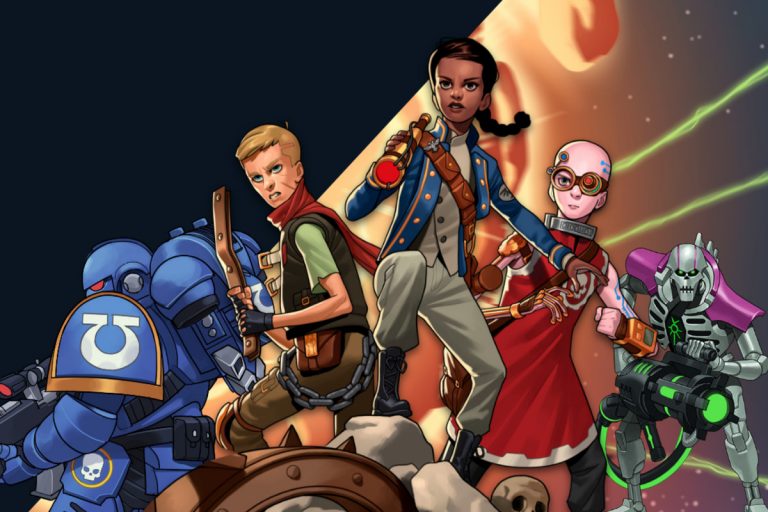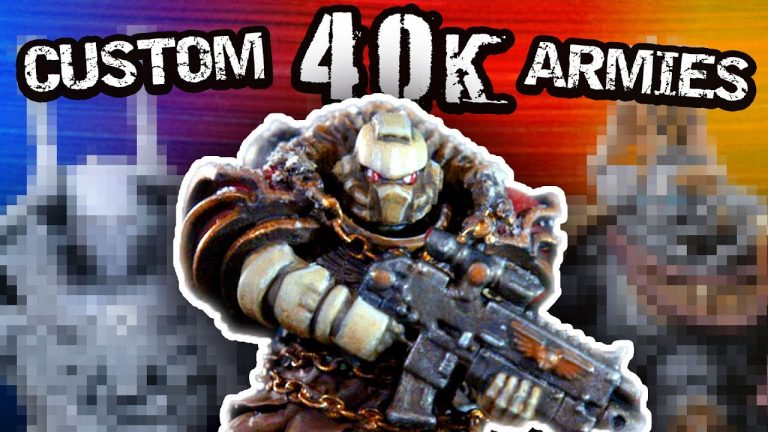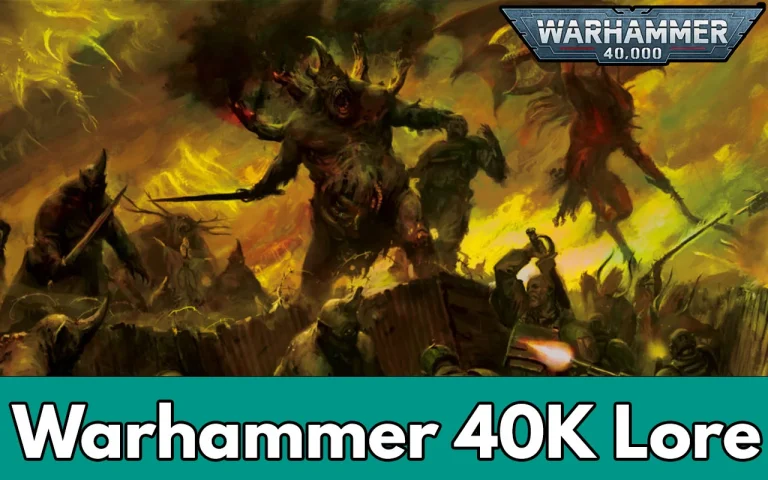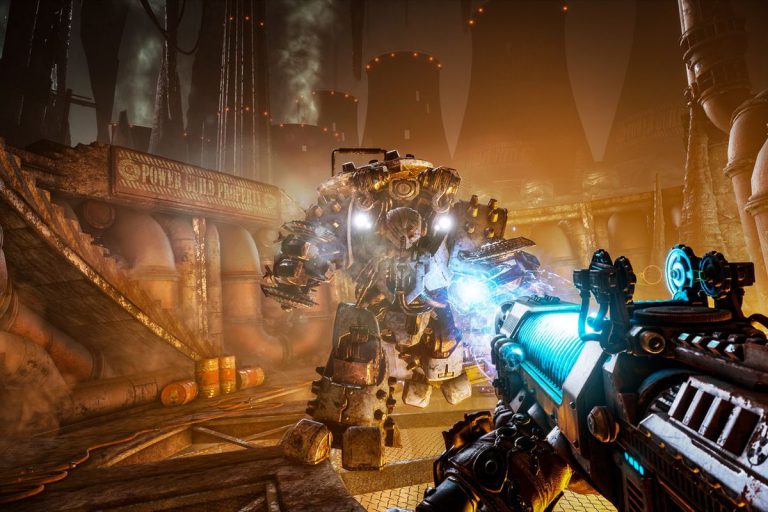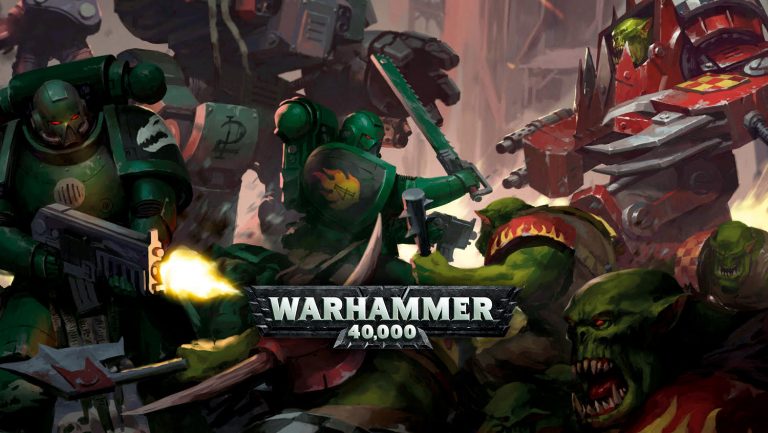How Long Does A Typical Warhammer 40k Game Last?
If you’ve ever dived into the captivating world of Warhammer 40k, you know just how immersive and thrilling the tabletop game can be. But have you ever wondered, how long does a typical Warhammer 40k game last? Well, my friend, you’re in luck because I’m here to shed some light on this burning question.
When it comes to Warhammer 40k, time flies when you’re engaged in epic battles and strategic maneuvers. A typical game can last anywhere from 1 to 4 hours, depending on various factors such as the size of the armies, the complexity of the mission, and the experience level of the players. So, buckle up and get ready for an exhilarating ride through the vast reaches of the Warhammer universe!
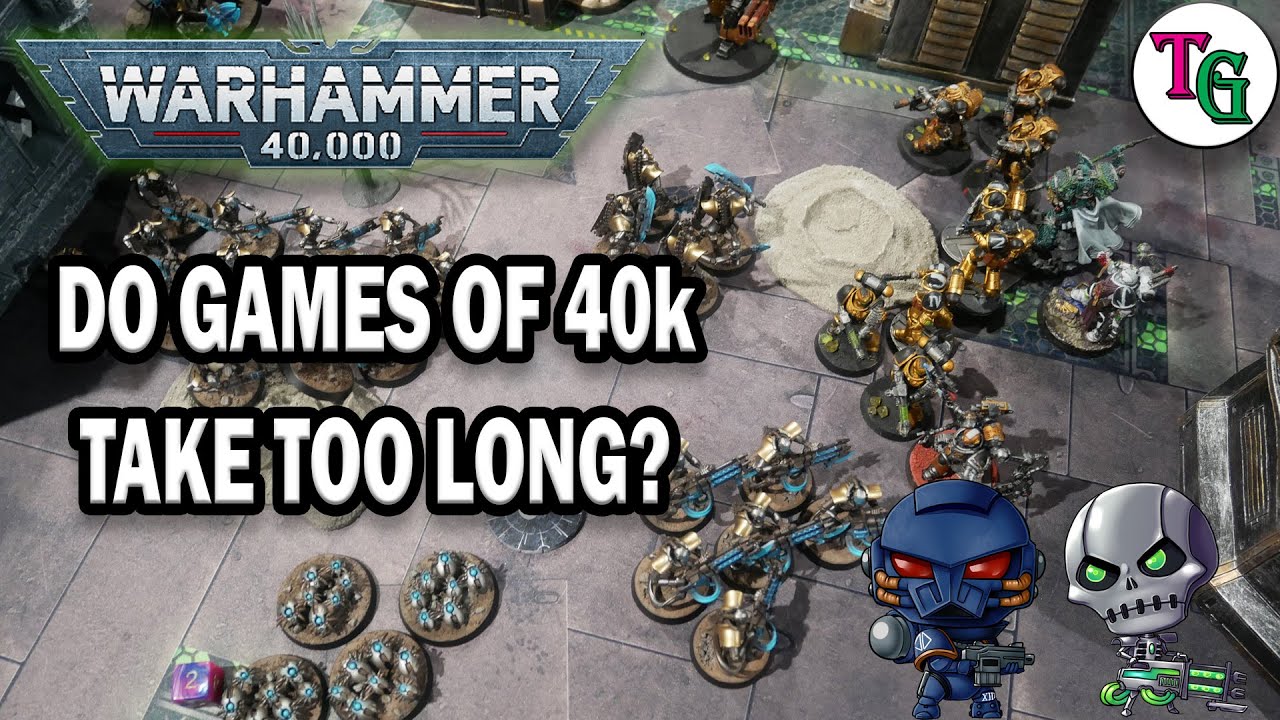
How Long Does a Typical Warhammer 40k Game Last?
Warhammer 40k is a tabletop miniature wargame that has captured the imaginations of gamers worldwide. It is known for its intricate rules, detailed miniatures, and immersive lore. One common question that newcomers often ask is, “How long does a typical Warhammer 40k game last?” The answer to this question can vary depending on several factors, including the game size, the experience level of the players, and the army compositions. In this article, we will explore the average duration of a Warhammer 40k game and discuss the factors that can influence its length.
Factors Affecting the Duration of a Warhammer 40k Game
Several factors can influence the duration of a Warhammer 40k game. These factors can vary from game to game, and understanding them can help players plan their gaming sessions more effectively.
Firstly, the size of the game is a significant factor in determining how long it will last. Warhammer 40k games can range from small skirmishes with just a handful of units to massive battles featuring dozens of units on each side. Naturally, larger games tend to take longer to complete as there are more units and actions to consider.
Secondly, the experience level of the players can also impact the duration of a game. Newer players may take longer to make decisions and reference rules, while experienced players may be more familiar with the game mechanics and can play more efficiently. Additionally, experienced players may have optimized army lists that can quickly dispatch their opponents, resulting in shorter games.
Thirdly, the army compositions chosen by the players can influence the game’s duration. Some armies excel at close combat, while others specialize in long-range shooting. The interaction between different army compositions can lead to faster or slower battles depending on the strategies employed by each player.
Game Size
The size of the game is perhaps the most significant factor in determining how long a Warhammer 40k game will last. Games can be played at various point levels, with smaller games typically being faster to complete. A small game, such as a 500-point battle, can be finished in around 1-2 hours. On the other hand, larger games, such as 2,000 points or more, can take upwards of 4-6 hours or even longer to complete.
In smaller games, players have fewer units to control and fewer decisions to make, which can lead to faster gameplay. These games are often ideal for beginners or players who are short on time. However, they may lack the epic scale and strategic depth of larger battles.
In larger games, players have more units and options at their disposal, resulting in longer gameplay. These games allow for more complex strategies and tactics to be employed, as well as the opportunity to field massive armies and powerful units. However, they require a significant time commitment and may not be suitable for all players or gaming sessions.
Experience Level
The experience level of the players involved can significantly impact the duration of a Warhammer 40k game. Newer players may take longer to make decisions, reference rules, and calculate their moves. They may also require more time to analyze the battlefield and plan their strategies.
Conversely, experienced players are often more familiar with the game mechanics and have a better understanding of their army’s strengths and weaknesses. They can make decisions more quickly and efficiently, resulting in faster gameplay. Experienced players also tend to have a better grasp of the rules, reducing the need for frequent rulebook consultations.
It’s worth noting that playing with players of similar skill levels can lead to more balanced and enjoyable games. If there is a significant skill gap between players, the more experienced player may dominate the game, resulting in a quicker victory.
Army Compositions
The army compositions chosen by the players can also influence the duration of a Warhammer 40k game. Some armies are designed to excel in close combat, relying on powerful melee units to quickly dispatch their opponents. These armies often favor aggressive playstyles and can result in faster-paced battles.
On the other hand, armies that focus on long-range shooting and defensive strategies may lead to slower, more methodical gameplay. These armies often excel at picking off enemy units from a distance and can force their opponents to carefully maneuver to avoid being shot down.
The interaction between different army compositions can also impact the game’s duration. For example, two armies with similar playstyles may engage in a protracted battle as they try to outmaneuver and outgun each other. Conversely, a mismatch in army compositions, such as a close combat-focused army facing off against a shooting-focused army, may result in a faster victory for one side.
In conclusion, the duration of a Warhammer 40k game can vary depending on several factors, including the game size, the experience level of the players, and the army compositions. Smaller games tend to be faster, while larger games require a significant time commitment. Newer players may take longer to play, while experienced players can move more quickly. Army compositions can also influence the game’s pace, with close combat-focused armies leading to faster battles and shooting-focused armies potentially resulting in slower, more methodical gameplay. Ultimately, the length of a Warhammer 40k game will depend on the choices made by the players and the strategies they employ.
Key Takeaways: How Long Does a Typical Warhammer 40k Game Last?
- A typical Warhammer 40k game can last anywhere from 1 to 4 hours.
- The game length can vary depending on factors such as the army size, experience level of the players, and the scenario being played.
- Shorter games are usually played with smaller armies and simpler scenarios, while longer games involve larger armies and more complex objectives.
- Players can also choose to play a timed game, where each player has a set amount of time to complete their turns, which can help speed up the game.
- It’s important to note that Warhammer 40k is a strategic tabletop game that requires careful planning and decision-making, so the length of the game can also be influenced by the players’ playstyles.
Frequently Asked Questions
How long does a typical Warhammer 40k game last?
Warhammer 40k is a tabletop miniature wargame that can be played with varying game sizes and rulesets. The duration of a typical game session depends on several factors, including the size of the armies, the experience level of the players, and the specific scenario being played. On average, a standard game of Warhammer 40k can last anywhere from 1 to 3 hours.
However, it’s important to note that larger games with more complex rules and additional terrain features can take longer to complete. Additionally, players who are new to the game may take more time to familiarize themselves with the rules and strategies, which can extend the duration of the game. Ultimately, the length of a Warhammer 40k game is flexible and can be adjusted to suit the preferences of the players.
Are there any ways to shorten the duration of a Warhammer 40k game?
Yes, there are a few strategies that can be employed to shorten the duration of a Warhammer 40k game. One option is to play with smaller armies, which reduces the number of units and the overall complexity of the game. This can help streamline gameplay and make the game progress more quickly.
Another option is to use a simplified ruleset or play a specific scenario that focuses on quick and intense battles. These scenarios often have specific victory conditions or time limits, which encourage players to make decisive moves and speed up the game.
What factors can influence the duration of a Warhammer 40k game?
Several factors can influence the duration of a Warhammer 40k game. Firstly, the size of the armies involved can greatly impact the length of the game. Larger armies with more units and models generally take longer to move and resolve actions, whereas smaller armies can result in faster gameplay.
The experience level of the players also plays a role. Newer players may take more time to understand the rules and make decisions, which can extend the duration of the game. In contrast, experienced players who are familiar with the rules and strategies can play more efficiently and complete games more quickly.
The specific scenario being played can also affect the duration of the game. Some scenarios have shorter time limits or victory conditions that encourage aggressive and fast-paced gameplay, while others may have objectives that require more time to achieve.
Can Warhammer 40k games be played in a tournament setting with strict time limits?
Yes, Warhammer 40k games can be played in a tournament setting with strict time limits. In competitive play, tournaments often enforce time restrictions to ensure that games progress at a reasonable pace and that all matches can be completed within the allocated time.
These time limits can vary depending on the tournament rules, but they are typically designed to keep games moving and prevent excessive delays. Players are expected to make decisions and resolve actions within a certain timeframe, which adds an additional layer of challenge and strategy to the game.
Are there any alternative game modes or formats for quicker Warhammer 40k games?
Yes, there are alternative game modes and formats available for those looking for quicker Warhammer 40k games. One popular option is Kill Team, which is a skirmish-level variant of the game that focuses on smaller, elite squads. Kill Team games are typically faster-paced and can be completed in a shorter amount of time.
Another option is to play narrative-driven scenarios or campaigns that have specific objectives and time limits. These game modes often prioritize storytelling and can be customized to fit the desired duration, allowing players to create exciting and dynamic experiences while still keeping the game length manageable.
What is the Life Span of each Race? | Warhammer 40k Lore
Final Summary: How Long Does a Typical Warhammer 40k Game Last?
So, how long does a typical Warhammer 40k game last? Well, the answer to that question is not set in stone. It all depends on various factors such as the size of the armies, the experience of the players, and the level of strategy involved. However, on average, a typical Warhammer 40k game can last anywhere from 1 to 4 hours.
Now, before you start worrying about the length of the games, let me assure you that the duration is part of the fun! Warhammer 40k is a game that allows players to immerse themselves in a rich and complex universe, where every decision counts. The length of the games gives you the opportunity to strategize, plan your moves, and truly experience the thrill of battle.
So, whether you’re a seasoned veteran or a newcomer to the Warhammer 40k universe, don’t let the duration of the games discourage you. Embrace the challenge, dive into the world of war, and enjoy the epic battles that unfold on the tabletop. Remember, it’s not just about winning or losing; it’s about the journey and the memories you create along the way. So gather your armies, roll the dice, and may the Emperor guide your every move!

